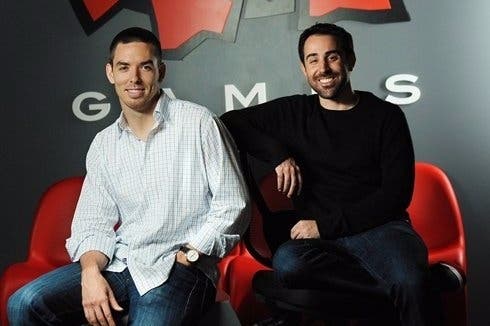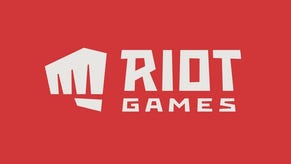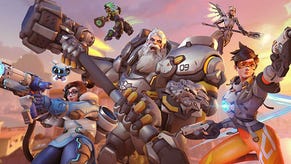Fresh League of Legends row highlights fragile nature of a pro eSports career
Riotous indignation.
A heated debate is unfolding in the League of Legends eSports community, following some provocative comments from Riot Games co-founder and League of Legends co-creator Marc Merrill on player wages and investment into the game.
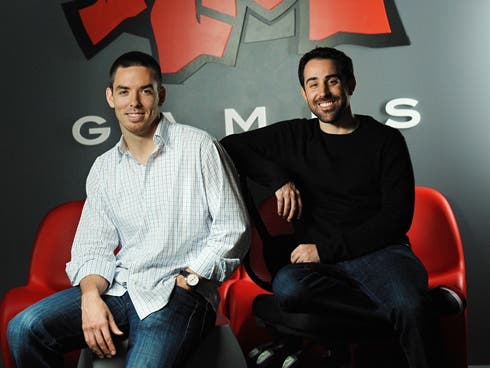
The initial discussion began when Andy 'Reginald' Dinh, founder of the hugely popular Team SoloMid eSports organisation (TSM) and an ex-professional player, called Riot's patch timing ahead of the upcoming League of Legends World Championships "absolutely f***ing ridiculous" during an interview.
According to Dinh, such late, dramatic patches during the peak season - last year's 'Juggernaut' patch being an infamous example - undermines players and coaches' ability to properly prepare for major tournaments, despite the entertainment value of the ensuing chaos for viewers.
As a result, Dinh goes on to claim, the entire viability of a career in LoL eSports is undermined - teams with disrupted preparation face a far greater risk of suffering the significant financial consequences of relegation from the top leagues.
Merrill, posting on the League of Legends subreddit under his Riot alias 'Tryndamere', gave a withering response to the above, with the following opening line:
In the original post - which has since been edited - Merrill goes on to claim that despite Dinh being one of the "good guy" owners, Riot Games cannot and should not influence "owners who don't want to shell out for top talent", and that regarding late patches, "coaches / owners are complaining about it because it makes it harder for them to hide certain line up / skill deficits they may have on their rosters".
The implication, then, is that the onus is on teams to adapt properly to patches, and on owners to pay their players fairly - with a particular emphasis on those who allegedly make money from League of Legends and reinvest it in other eSports.
Those points have drawn outrage from other team owners and members of the LoL eSports community.
Robert 'Chachi' Stemmler, co-founder of another eSports team, Enemy, tweeted a lengthy written repose to Merrill's comment the next day, noting that "the reason I've waited almost a full day to post this is I was so livid when the comment was made that I was afraid to post anything at that point in time". He goes on to heavily criticise Riot Games' management of the professional scene.
Others, such as European LCS team coach Jakob 'YamatoCannon' Mebdi - who's also a frequent analyst on Riot Games' broadcasts of LoL eSports - weighed into the debate by claiming that "there is nothing positive for Riot to gain out of this comment" and that the developer-publisher's apparent disconnection from their own community was "just shocking".
Dinh's response, meanwhile, is already known in part, as he replies to a question on the topic in the aforementioned interview. "Bulls***", was the exact terminology - "from an outside perspective it's easy to say that, but they [the people who claim players ought to adapt] don't understand how much effort and time the players have to put into learning the game.
"It's like essentially if you go to school to become a math teacher, but all of a sudden you find out six months later that you have to teach science, otherwise you'll lose your job."
That final point alludes to a broader problem in the League of Legends eSports scene, which is really the underlying issue of the discussion. Average professional player career lengths in LoL are two to three years, whilst those who play for a team that's relegated from the top tiers of Riot-organised leagues, such as the North American League Championship Series (LCS), can often expect their careers to end on the spot without enough of a personal brand to move into streaming - all due to a lack of available funding for teams and players.
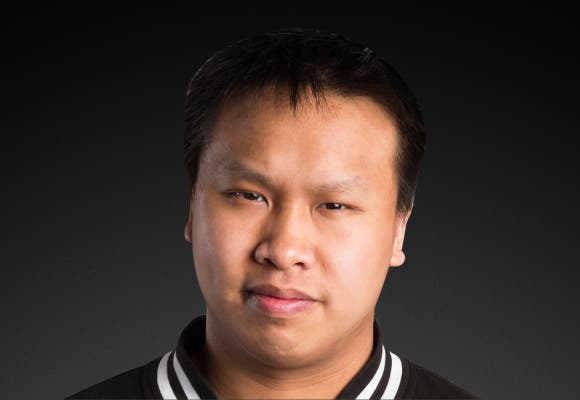
In a separate, written response to Merrill, Dinh goes on to say that "Most LCS teams lose money because stipends are stagnant, sponsorships for LCS team operations are shrinking and the cost of player salaries, content production, support staff and housing costs are spiraling up."
There's also an insinuation that Riot Games has actively damaged its pro players' ability to hold a stable career through its restrictive regulation on sponsorship. According to Dinh, "LCS told team sponsors, which are a necessary source of revenue, that they can't even go backstage to watch the players compete."
Sponsor branding is also forbidden from being placed on team beverages, hats, or headsets - in fact all players must wear the same headsets when competing, although you could certainly argue there are technical justifications for that having to be the case.
In Riot's defence, such restrictive policies may simply be due to the nature of their own sponsorship agreements - Coca Cola, for instance, have been a highly visible sponsor for major League of Legends tournaments in recent years.
Merrill has also since edited his original comment, with the new post noting: "We have always been concerned about player compensation and creating a viable 'path to pro' and ensuring pros can actually have a meaningful career - hence why we subsidised team salaries to create minimums, etc."
He also went on to reiterate his point that team owners such as Dinh "have businesses that are highly valued", and that "one of the challenges is when these profits (from League) are then allocated to other non-League games instead of continuing to invest in the scene and their players."
Dinh, in his response letter, maintains that the reason why he started to invest in other games - such as Counter Strike: Global Offensive - was because, in light of their restrictions on revenue sources, "LCS left me no choice".
At this point, League of Legends team bosses have stopped short of threatening to pull out of the game's eSports scene, but it does seem that the row has sparked Riot into thinking about the way it works.
In a follow up comment on Reddit, Merrill admitted Riot had been "really silent on these complex issues" and promised to "engage in a more meaningful public dialogue" around the problem in the future.
